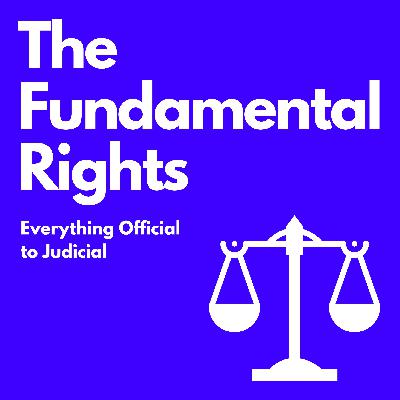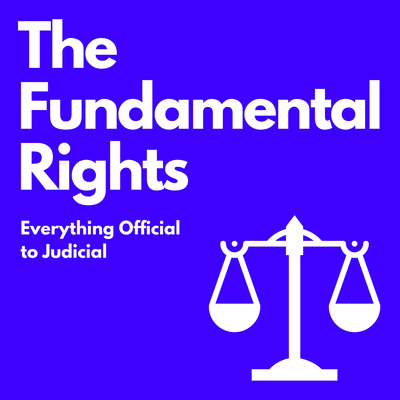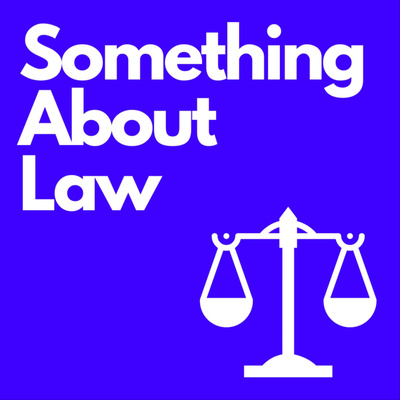Discover The Fundamental Rights
The Fundamental Rights

The Fundamental Rights
Author: The Fundamental Rights
Subscribed: 10Played: 27Subscribe
Share
© The Fundamental Rights
Description
The Fundamental Rights is an Indian legal podcast that focuses on predominant and perennial legal issues, cases, doctrines, black letter laws and expounds on unfamiliar yet manifest status quos.
14 Episodes
Reverse
This episode gives a broad outline of the purpose of Anti-Defection law and how its widely known loopholes makes it inconsequential.
Can the Governors and the President pardon all offences and does this pardoning power extend to extinguish penalties and costs imposed by the courts? Why does the pardoning power even exist after having a comprehensive multi-tired judicial system? Listen to find out!
This episode indulges in the reasoning of the Karnataka High Court judgment on 'ban on hijab' and discusses the social milieu in which Hijab and similar style of clothing became prevalent. This episode also distills Art. 25 rights and its interaction with the famous-infamous essential religious practice test.
Why are International Court of Justice (IJC) decrees un-enforceable? If Orders of ICJ are practically futile, what prompted Ukraine to petition the ICJ requesting it to Order suspension of Russian military offensive?
Governors acting as ex-officio Chancellors is a British vestige and this episode deliberates on the practical or impractical reasons (you be the judge!) of this vestige and the recent developments of relations between the tussle between state governments and Governors/Chancellors.
Note: I forgot to mention that Chief Justices are the Chancellors of National Law Universities and this I believe lends more credibility to the institution for a university under the control of the highest judicial officer of the state is expected to maintain lofty standards and compromises nowhere on the curriculum.
Why are governor's the Chancellors of Universities and what are their powers over the executive branch in the University?
India's federal framework is unique to itself and as a corollary, the inter-state relations are tailored to suit India's unique needs and with the history of working of federations all across the world, the constitution framers carefully enacted Art. 256, 257 and 365 which appear to be unitary but are at the core very federal and arguably without them, a federation would be impossible and this episode discusses briefly on that.
Why did India Choose Federalism?
This episode briefly touches on binding guidelines on the courts while screening the constitutionality of statutes especially vis-a-vis colourable legislation and very briefly on why a preamble shall not be amended.
Can speeches of Individual representatives in the parliament be looked into while construing constitutional provisions? What are valid aids of interpretation of constitutional provisions? The answer to the latter is drafts of the constitution, amendments made to such drafts and the reports submitted by committees formed by the constituent assembly. Find out the answer to the first and reasons for both the questions in this episode.
This episode contains a brief on interpretation of statutes especially on the admissibility of parliamentary speeches in drawing judicial conclusions, admissibility of arguments on the strength of such judicial conclusions and court's attitude on accepting parliamentary speeches as evidence.
This episode discusses the introduction to Seervai’s constitution and his juxtaposition of Indian constitution with that of United States’, Australia, Great Britain and Canada and Seervai's take on external influences on the constitution from the social circumstances prevailing during its drafting.
Bar Council of India (BCI) is the apex governing body of all the advocates in India and unlike Bar Councils of other countries, BCI is a creature of a statute and is a state under Art. 12 of the constitution. BCI is also very different from Bar Council equivalent bodies in other democratic countries as all of them are voluntarily associations. This episode contains a little about everything aforementioned.
In this inaugural episode, I talk about what the podcast will be about and the reasons for starting this podcast.







